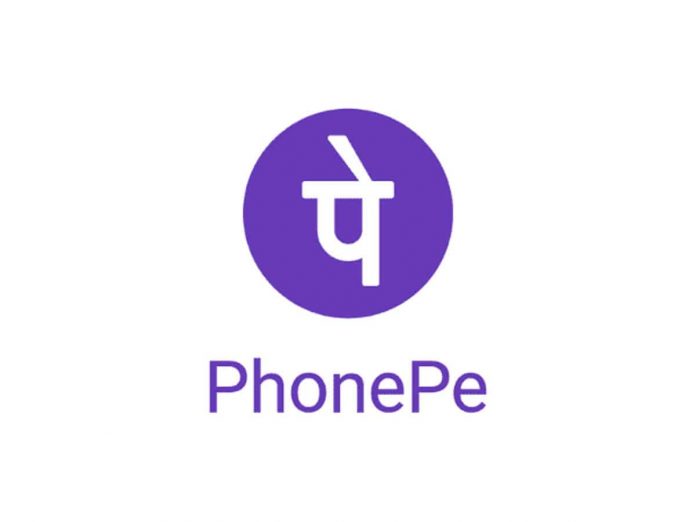This article is written by Harshita Gupta, pursuing Diploma in M&A, Institutional Finance and Investment Laws (PE and VC transactions) from Lawsikho.
Table of Contents
Background of the deal: Laying out the context
Indus OS is an online app marketplace that brings together various stakeholders-the users, application developers and brands like Samsung on a single platform. It is the home-grown app store and furthers the spirit of AtmaNirbhar Bharat as propounded by our current Prime Minister, Narendra Modi. Another important leverage is that the platform deals with its focus on local and regional languages to cater to the vast diversity of the Indian population as it has applications in more than 12 regional languages. Its significance has been rising due to a push for using home-grown technologies and as an alternative to Google Appstore. Google Appstore had announced a 30% cut from the purchases that will be made from applications downloaded from it. This has been to avoid circumvention of its in-app payment policy by applications that offer direct credit card payment instead of following Google’s billing system. Various other leaders in the mobile space have their own app marketplaces like Jio marketplace (Reliance), Mini AppStore (Paytm) and PhonePe who want to allegedly acquire a 90%-92% stake in Indus OS to fulfil the requirement of its own app marketplace and it can see the flow of synergies in the proposed deal. Indus OS founders on the other hand look forward to an exit through acquisition by the PhonePe. Possible reasons for the same will be discussed later in the article.
How does Affle Global come into the picture in the proposed deal? Affle is a digital advertising firm that regulates consumer engagement through relevant mobile-based advertising. It has a minority investment in OSLabs Private Limited (Indus OS). It claims to not have agreed to the touted acquisition of Indus OS by PhonePe and has filed a lawsuit in Singapore against the valuation of Indus OS and has also invoked the Right of First Refusal (ROFR) against the founders’ stake in Indus OS.
Events that have transpired so far
Let us look at a few developments that have transpired till now which will help us understand the deal better:
- The Economic Times and The Ken have reported that PhonePe currently has a 30%-32% stake in the Indus OS after having bought stakes from investors such as Omidyar Network, JSW Ventures, Micromax etc. It aims to acquire a 90%-92% stake through the proposed acquisition.
- Affle India’s subsidiary Affle International acquired an 8% stake in Indus OS for around 2.86 million US dollars and its CEO reported that the deal would be crucial in building up its multilingual capacities and help in enhancing its vernacular footprint and vertical integration strategy. It is alleged to buy additional stakes from the other investors taking the total stake to 23% as reported by The Ken.
- It is alleged that PhonePe went on to buy the stakes of other investors also taking its holding in Indus OS from 8% to 32%.
The current holding structure of Indus OS is as follows (based on various reports):
|
Phone Pe- 32% |
Affle- 23% |
Founders of Indus OS- 20% |
Samsung- 20% |
Other investors- 5% |
Therefore, the picture is clear PhonePe cannot acquire 90%-92% stakes in Indus OS without buying out shares of Affle. Affle is claiming the Right of First Refusal (ROFR) against the selling of Founders’ stake of 20% to PhonePe as it will total up the holding of PhonePe to 52% majority shareholding. More so, Affle has a 23% stake currently short of the 25% required to block a special resolution if such a need arises. So both the investors; PhonePe and Affle respectively seem to have competing notions about the valuation of Indus OS; however, Affle is against such an acquisition by PhonePe and is claiming the Right of First Refusal (ROFR) in this context.
The bone of contention: ROFR clause and valuation mismatches
Affle claims that Indus OS should be valued at 90 million dollars whereas the projection of PhonePe while acquiring Indus OS is that of 60 million dollars. For the purpose of this article, the researcher will not go into the valuation aspect and would discuss only the contention of Right of First Refusal(ROFR) and various interests the investors have in the Indus OS deal. Affle contends that there is a Right of First Refusal (ROFR) in the shareholder’s agreement and therefore Indus OS cannot sell the founders’ stake to PhonePe without first giving the opportunity of buying that stake to Affle.
How does ROFR work and what are the implications?
The Right of First Refusal (ROFR) clause of the shareholders’ agreement governs the selling off of a stake by current investors and other investors’ right to be given a preference to acquire it first. The existing investors (in this case the founders) have to offer the stake to current investors before selling it off to anyone else. In the present case, Affle is claiming this right of ROFR and not PhonePe, though both are investors of the Indus OS. This clause is extremely important for the existing shareholders as it gives them a chance to avoid the shares passing on to their competitor or to whom it does not share friendly relations. Minority shareholders find this clause beneficial if they feel that they would not want the majority shareholding to shift to someone else other than the current majority shareholder.
In the case of Right of First Refusal (ROFR), the founders have to solicit an offer from a third party regarding the acquisition and they have to put the same offer to existing shareholders. The existing shareholders have the right to accept the offer or to refuse it. If they refuse the offer, only then can the founders sell their stake to someone else. So, here if Affle wants to retain its shareholding and restrict PhonePe from becoming a majority shareholder after acquiring founders’ stake, then Affle is invoking the right clause which will give it an extremely important strategic advantage. Again, it might not agree with the valuation aspect but still, it will have an opportunity to buy the founders’ stake.
An important point that is still to be discovered is whether the Right of First Refusal (ROFR) clause was incorporated for Affle and PhonePe. As if both entities can invoke the clause then founders will have to offer the stake to both the investors. It will still benefit Affle as PhonePe would not be able to acquire more than a 50% stake. So, how the clause is drafted will have huge implications on the exit process by the founders and also on the valuation of such an exit. The Right of First Refusal (ROFR) clause also includes the situations in which it can be invoked so Affle would need to satisfy those conditions before invoking the clause.
PhonePe and Indus OS have made the contention that Affle had already agreed to the proposed acquisition and is therefore bound by its agreement. Affle on the other hand contends that it did not sign any legally binding term sheet. These facts have to be enquired by the court now that the lawsuit has been filed. The Right of First Refusal(ROFR) is by all means just a right given to investors and it can very well be waived. So, if Affle has already agreed to the proposed 90%-92% acquisition of Indus OS by PhonePe then it would be deemed that they have waived their ROFRand now it cannot invoke the same. But this will be a determination based on facts as these term sheets and agreements are not public.
Competing or non-aligned interests of investors
This is a classic example of investors of the same company having non-aligned interests. PhonePe has even termed Affle contentions as ones motivated by ‘bad faith’ to stall the purported acquisition. The motivations of each party involved are different and therefore the acquisition by PhonePe is now beset with difficulties. Indus OS has grown over the last few months due to the pandemic and also the push for home-grown technologies. Its user base has increased but still, there are a lot of uncertainties due to which further growth cannot be promised. In this context, we have two investors who might see Indus OS as an addition to their existing capabilities and they can look forward to leveraging the vernacular base of Indus OS. Since the interest of PhonePe lies in buying a 90% stake, it might be in competition to the interests of Affle as it also might want to acquire some control over Indus OS and Affle is continuing to project itself as a strategic investor.
What can be expected next?
Since a lot of contentions are just based on public announcements and some unidentified sources, nothing concrete can be said about the deal. The way in which the clause of Right of First Refusal (ROFR) is drafted will determine whether it can be invoked by Affle or not. The term sheet also needs to be checked to see whether Affle is bound by it or not. Now that the case is filed, these determinations are better left to the court. The lessons for us from this deal are far-reaching in terms of the importance of the Right of First Refusal (ROFR) clause and also in terms of having investors with interests aligned to that of the founders and to each other.
Students of Lawsikho courses regularly produce writing assignments and work on practical exercises as a part of their coursework and develop themselves in real-life practical skills.
LawSikho has created a telegram group for exchanging legal knowledge, referrals, and various opportunities. You can click on this link and join:
 Serato DJ Crack 2025Serato DJ PRO Crack
Serato DJ Crack 2025Serato DJ PRO Crack











 Allow notifications
Allow notifications


